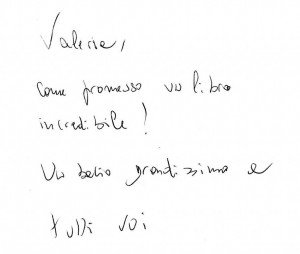[alert-white] Questo articolo e’ disponibile anche in Italiano ![]() [/alert-white]
[/alert-white]
Today the modern manager needs to be a skill motivator, with responsibilities focused mainly on the enhancement of human resources and the ‘organization of learning’ within corporate life.
The flexibility required of the new manager means he/she must take into account ongoing globalization, market turmoil, and the variables that render each strategy uncertain. As they say, he/she must possess the strength of the relaxed nerves….
Forget the executive manager of the past who was the transmission belt between the company, to which he/she was as faithful as a knight, and the ‘troops’; (BTW, it is now practically a must for the modern manager to speak English!)
Besides the traditional skills of self-control and personal responsibility, today’s modern manager must have the ability to delegate within the context of expanded roles and the ability to foster and perform teamwork, with an eye to the information and processes involved (including principles and values). This entails open dialogue, enhancement, experimentation and an ‘enlightened’ error tolerance (we will see in the next ‘post’ what the skills required for modern collaborators entail).
Today’s ‘good leader’ would have been rejected by a selection several years ago, when issues such as the processes and projects were less important than the professional role itself, where there was no organization based on groups, and references were hierarchically separate.
We search for signs of a typical “leader’s” tone, vigor and initiatives in a manager’s handwriting, as well as creativity, enthusiasm, poise, good communication and listening skills, and empathy. Gone are the days of the great self-referential chief (the maximum leader).
Managers and leaders are not the same figure, and while a good manager always has leadership skills (authority, influence, ‘visionary’ involvement), a good leader may not always be responsible for the business side, i.e., the managerial responsibilities within the organization.
Managers must possess qualities of responsibility, ethical soundness, willingness to take risks and to adapt to the unexpected, as well as identification with the company policy,
but also
flexibility and open-mindedness (in which a certain amount of ‘constructive doubt’ is welcome);
initiative and the desire to appraise staff (intuition helps);
openness to shared dialogue (perhaps due more to human curiosity and openness to diversity than for sentimental reasons).
Graphological signs relating to these qualities are searched for in the handwriting of the new chief-manager, with a careful assessment of any ‘hybrids’, i.e. an excess of ambition and the need for confirmation, approval and applause, a certain ambivalence, or even anxiety.
Depending on the corporate business needs, the type of management model should be more clearly specified and ‘compared’ with the trends of the candidates, the possibilities are in fact different between the two extremes of the mechanistic mode and the organic one even though today we tend to prefer an intermediate undertone of the so-called ‘situational leadership’, in which the management style is chosen depending on the different situations.
The handwriting shown here (above) is of a manager of a large foreign bank who obtained a degree in electronic engineering in Italy after attending a high school in classical studies. He uses great listening skills to manage a work team (and a large family). His handwriting shows the characteristics of listening, flexibility and attention to others, which I mentioned above.
Several graphological signs stand out in his handwriting: triple balanced width (generosity, objectivity in judging others, empathy) with a wide space between words (critical reasoning, equanimity). The letters are detached and slant leftwards, with concave rods on the left hand side within a spidery context (sensitivity), and good ‘chiaroscuro’ – light and shadow (capacity to analyze and verify data, not without prudence, which keeps enthusiasm at bay). The enlivened pace shows signs of rapid action with a touch of impatience, and steady adherence to the row (lively and receptive temperament, emotional wealth, speed of associative functions).
His handwriting is curved, albeit with ‘reactive’ angles and a high Methodical Unequal (originality, inventiveness, intuition, ability to find innovative solutions).
Today we tend to favor the practical attitude rather than attention to the relationship, which can be based on different managerial styles, from the most executive to the most delegated, with various middle roads and the possibility to switch from one to another, always with a keen eye on the needs of all those involved. In my opinion, this opens up great spaces for women with managerial skills.
I will definitely touch on this subject again.
See you soon!
Valeria



Scrivi un commento